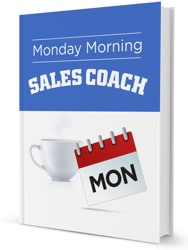“You Haven’t Heard the Best Part”
Problem: Jim and Howard were presenting their case for doing business with one of the largest grocery retailers in the U. S. Their company, Lincoln Inventory Services, sold inventory counting services to retailers. Associated Grocers represented an important sale for them. About halfway through their presentation Sam, Associated’s CFO, said, “Okay guys, you’ve said enough. I can see that your program will meet our needs. We’d like to sign the contract and get started immediately.” Jim, the sales manager, relaxed visibly. They had done it; they bagged the big one; it was over.
Suddenly Howard, Jim’s local sales rep, said, “Wait a minute, Sam. You haven’t even heard the best part.” Intrigued, Sam replied, “What would that be?”
Howard then proceeded to launch into a discussion of Lincoln’s warranty program, stating, “If Lincoln ever conducts an inaccurate inventory, we’ll come back and recount it at no charge.” Howard was really proud of the warranty program.
Well, Sam’s response was predictable. He asked, “How many bad inventories do you guys do? Tell me about your quality control program.”
Suddenly, Jim and Howard found themselves in a discussion about quality with Sam, who was now skeptical of Lincoln’s ability to count inventories accurately.
Analysis: Howard had committed a cardinal sin of selling: when the sale is made, don’t offer additional information as it can often cause you to lose the sale. Unfortunately, Howard was of the old “feature & benefit” school of selling and found it very difficult to keep his mouth closed. He felt that the additional warranty information would help solidify the sale, when it had just the opposite effect.
Prescription: You’re in the sales profession, not the education profession! Sellers are not teachers and most teachers can’t sell. Often we hear salespeople say that they need to educate their prospects; and as a result, they spend far too much time dispensing information. Product knowledge is mistakenly considered to be the “holy grail” of selling. The fact is that product knowledge used at the wrong time can be devastating. In Associated’s case, a seemingly positive bit of information caused the buyer to raise an objection and the sellers to go on the defensive.
Howard and Jim recovered, but Howard almost got a very expensive lesson. Sell today. Tell them about the warranty program if and when you need to use it. Product knowledge is used to address the prospect’s pains, not to provide a variety of reasons to buy from the seller. When you’ve got the business, keep your big mouth shut!


